Dr. Kristina Meshelski
 I am an Associate Professor of Philosophy at CSUN. My research focuses on economic justice, including the way that it intersects with gender and racial justice. In the community, I am active with the Democratic Socialists of America-Los Angeles, as well as the Los Angeles Tenants Union. I'm available to mentor FIS students interested in or taking philosophy classes, or to provide support for FIS students experiencing housing insecurity.
I am an Associate Professor of Philosophy at CSUN. My research focuses on economic justice, including the way that it intersects with gender and racial justice. In the community, I am active with the Democratic Socialists of America-Los Angeles, as well as the Los Angeles Tenants Union. I'm available to mentor FIS students interested in or taking philosophy classes, or to provide support for FIS students experiencing housing insecurity.
Alicia Ivonne Estrada
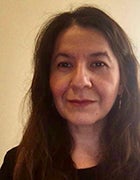 Alicia Ivonne Estrada is a professor in the Chicana/o Studies Department at California State University at Northridge. She has published on the Maya and Guatemalan diaspora in Los Angeles as well as on contemporary Maya literature, film and radio. She is co-editor with Karina O. Alvarado and Ester E. Hernández of the critical anthology U.S. Central Americans: Reconstructing Memories, Struggles and Communities of Resistance (University of Arizona Press, 2017). Estrada’s work has appeared in Romance Notes, Latino Studies, Revista Canadiense de Estudios Hispánicos, among other journals and anthologies. Her current book project is on the Maya diaspora in Los Angeles. Since 2006, she has actively collaborated with the Maya radio collective Contacto Ancestral. The show has been on the airwaves for over a decade on the community radio station KPFK.
Alicia Ivonne Estrada is a professor in the Chicana/o Studies Department at California State University at Northridge. She has published on the Maya and Guatemalan diaspora in Los Angeles as well as on contemporary Maya literature, film and radio. She is co-editor with Karina O. Alvarado and Ester E. Hernández of the critical anthology U.S. Central Americans: Reconstructing Memories, Struggles and Communities of Resistance (University of Arizona Press, 2017). Estrada’s work has appeared in Romance Notes, Latino Studies, Revista Canadiense de Estudios Hispánicos, among other journals and anthologies. Her current book project is on the Maya diaspora in Los Angeles. Since 2006, she has actively collaborated with the Maya radio collective Contacto Ancestral. The show has been on the airwaves for over a decade on the community radio station KPFK.
Dr. Marquita Gammage
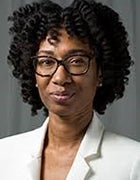 Marquita M. Gammage is a Full Professor in the Africana Studies Department at California State University, Northridge (CSUN). She earned her PhD in African American Studies from Temple University. Her research examines the calculus of media effect on the sustainability of anti-African racist ideologies through the intersection of race, gender, and media. By analyzing current popular media productions (news, reality TV, television dramas, social media, etc.) paired with an Afrocentric historical and cultural lens, her research demonstrates how the continued misrepresentations of Blacks in the media can be predictive of future public policy initiatives that endanger the freedom and liberties of African Americans.
Marquita M. Gammage is a Full Professor in the Africana Studies Department at California State University, Northridge (CSUN). She earned her PhD in African American Studies from Temple University. Her research examines the calculus of media effect on the sustainability of anti-African racist ideologies through the intersection of race, gender, and media. By analyzing current popular media productions (news, reality TV, television dramas, social media, etc.) paired with an Afrocentric historical and cultural lens, her research demonstrates how the continued misrepresentations of Blacks in the media can be predictive of future public policy initiatives that endanger the freedom and liberties of African Americans.
The power of culturally grounded education can transform individuals and communities. I whole-heartedly support formerly incarcerated students because they will become the change agents their communities need to thrive in an unjust society.
Laura H Wimberley
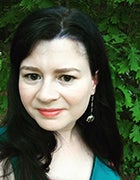 I grew up in Delaware and attended Oberlin College in Ohio, then moved to California to earn my Ph.D. in political science at the University of California San Diego. I earned my Master’s in Library & Information Science at San José State University and worked at a community college in Oregon and the University of Colorado before arriving at CSUN, where I’ve been a librarian since 2011. I’m a queer woman and a mother.
I grew up in Delaware and attended Oberlin College in Ohio, then moved to California to earn my Ph.D. in political science at the University of California San Diego. I earned my Master’s in Library & Information Science at San José State University and worked at a community college in Oregon and the University of Colorado before arriving at CSUN, where I’ve been a librarian since 2011. I’m a queer woman and a mother.
I’m here for all students, to help you orient your lived experience in deep scholarship, to offer you mind-expanding books, and to get you the data to become an expert.
Dr. Nicole R Blalock
Dr. Blalock (ᎾᏍᎩᎠᎨᏴ/she/her) is an Apsáalooke, Cherokee, Chickasaw and settler-Danish and settler-English professor in American Indian Studies who grew up on Cow Creek Umpqua, Tolowa Dee-ni’, and Tutuni homelands. She focuses on access, retention, and success in education, healing from intergenerational trauma, and decolonial and artivist work. In addition to her partnerships in Indigenous communities, she previously worked as a teacher in a school embedded in a juvenile incarceration facility with students 8 to 18 years of age.
Never forget that your voice and experience are valued and valuable. I am here to listen to you and support what you need to feel safe and be successful.
Nayan G. Ramirez, Ph.D.
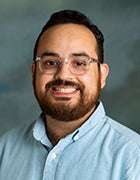 I’m Dr. Nayan G. Ramirez, an Assistant Professor of Criminology and Justice Studies (CJS) at CSUN. I received my Ph.D. in Sociology from Penn State. Broadly, my interests include gender and sexualities, juvenile delinquency, and social network analysis. My research focuses on the experiences of queer youth during adolescence and how different factors lead them towards and away from the juvenile justice system. Previously, I have collaborated on other projects related to the school-to-prison pipeline, including examining the effects of suspension and expulsion on elementary-school children. I also regularly teach classes in juvenile justice, criminological theory, and statistics in CJS.
I’m Dr. Nayan G. Ramirez, an Assistant Professor of Criminology and Justice Studies (CJS) at CSUN. I received my Ph.D. in Sociology from Penn State. Broadly, my interests include gender and sexualities, juvenile delinquency, and social network analysis. My research focuses on the experiences of queer youth during adolescence and how different factors lead them towards and away from the juvenile justice system. Previously, I have collaborated on other projects related to the school-to-prison pipeline, including examining the effects of suspension and expulsion on elementary-school children. I also regularly teach classes in juvenile justice, criminological theory, and statistics in CJS.
As someone whose work focuses on preventing youths’ contact with the justice system, I’m excited to help you in any way I can on your educational journey at CSUN.
Khanum Shaikh
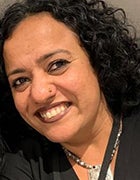 Khanum Shaikh teaches in the department of Gender and Women’s Studies at CSUN. She is originally from Pakistan but has spent most of her life living in Los Angeles. Prior to being an academic, she was a community organizer and an advocate with various social justice projects in L.A. Her research is on gender and/in Muslim communities and is driven by the desire to understand and intervene in oppressive ideologies that shape our thinking and the institutions that sustain them.
Khanum Shaikh teaches in the department of Gender and Women’s Studies at CSUN. She is originally from Pakistan but has spent most of her life living in Los Angeles. Prior to being an academic, she was a community organizer and an advocate with various social justice projects in L.A. Her research is on gender and/in Muslim communities and is driven by the desire to understand and intervene in oppressive ideologies that shape our thinking and the institutions that sustain them.
She has published in various journals including Meridians: Feminism, Transnationalism, Race, Frontiers: A Journal of Women’s Studies, Feminist Formations, and Journal of Middle East Women’s Studies. She is currently working on a project about intergenerational resistance to gendered regulation within families – the contradictions of sustaining communities while pushing against the cultural norms that hold them together – in ways that complicate mainstream discourses of individual choice. She has a passion for teaching and is continually inspired by the perseverance of students at CSUN. She has two sons who keep her busy and laughing (mostly). At some point in life, she’d love to travel and see more of the world.
I am committed to supporting formerly incarcerated students at CSUN because I believe in the intrinsic dignity and value of every human being. I believe that each of us is deserving of access to knowledge that can transform our minds and our futures. At the same time, I believe that institutionalized knowledge must be transformed by our lived experiences. I welcome Project Rebound to CSUN and am committed to offering whatever support I can to help build this prison to school pipeline.
Aimee Carrillo Rowe
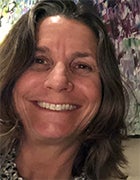 Aimee Carrillo Rowe (Ph.D., M.F.A.) is a Professor of Communication Studies at CSUN. She works across writing genres as a memoirist, feminist theorist, and culture critic. Her books include Power Lines: On the Subject of Feminist Alliances (Duke, 2008), Answer the Call: Virtual Migration in Indian Call Centers (Minnesota Press, 2013), and Silence, Feminism, Power: Reflections at the Edges of Sound (Palgrave, 2013). Her current projects include Queer Xicana: Performing the Sacred on the politics of healing, longing, and Indigenous erasure in queer Xicana performance, and a memoir about queer motherhood entitled, After Birth: Memoir of a Queer Family.
Aimee Carrillo Rowe (Ph.D., M.F.A.) is a Professor of Communication Studies at CSUN. She works across writing genres as a memoirist, feminist theorist, and culture critic. Her books include Power Lines: On the Subject of Feminist Alliances (Duke, 2008), Answer the Call: Virtual Migration in Indian Call Centers (Minnesota Press, 2013), and Silence, Feminism, Power: Reflections at the Edges of Sound (Palgrave, 2013). Her current projects include Queer Xicana: Performing the Sacred on the politics of healing, longing, and Indigenous erasure in queer Xicana performance, and a memoir about queer motherhood entitled, After Birth: Memoir of a Queer Family.
A few words:
Dear Students. I am SO glad you’ve made your way to the CSUN campus. I’m sure that was no easy task. I want you to feel empowered here. CSUN is uniquely positioned to give us theoretical language and organizing tools for social change. Your voice and experiences MATTER here. Know that you belong and you have so much to contribute.
Kent Baxter
Kent Baxter is Interim Associate Dean of the College of Humanities at CSUN. He is also a former chair of and faculty member in the Department of English. His research and teaching interests include children’s and young adult literature, modern American literature and culture, and issues of age and ageism in literature and culture. He is the author of The Modern Age: Turn-of-the-Century American Culture and the Invention of Adolescence (The University of Alabama Press, 2008), Critical Insights: Coming of Age (EBSCO/Salem Press, 2012), and various other publications on the socially constructed category of the adolescent and teen.
As Associate Dean, I can assist formerly incarcerated students with any issues related to course scheduling, registration, major/minor declaration, academic grievances, among other things. I believe our university is a venue for all students to empower themselves and transform their lives.
Gina Masequesmay
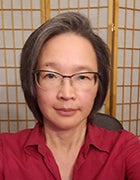 I support FIS because we all deserve a second chance. Having worked as a community organizer at the Indochinese Youth Center that was part of an Asian American and Pacific Islander coalition of community-based organizations working on drug, alcohol, and gang prevention, I had spoken against police use of mug books that racially profiled and arrested innocent people. Still naïve on many issues, I went to graduate school to learn more about sources of inequities to see how I can intervene. I have been teaching at CSUN for 20 years now and still believe in supporting youth who have been historically marginalized and oppressed.
I support FIS because we all deserve a second chance. Having worked as a community organizer at the Indochinese Youth Center that was part of an Asian American and Pacific Islander coalition of community-based organizations working on drug, alcohol, and gang prevention, I had spoken against police use of mug books that racially profiled and arrested innocent people. Still naïve on many issues, I went to graduate school to learn more about sources of inequities to see how I can intervene. I have been teaching at CSUN for 20 years now and still believe in supporting youth who have been historically marginalized and oppressed.
Clement Lai
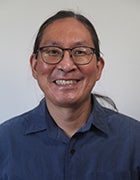 Clement Lai is an associate professor of Asian American Studies who teaches courses at CSUN on critical thinking, on contemporary issues, on urbanization, and on government and the political process. He earned his Ph.D. in Ethnic Studies at UC Berkeley in 2006, and he also has a MA in Geography, including studying Geography at CSUN in the early 1990s, so he is a CSUN alum. His research focuses on the political mobilization of multiracial communities and on the geography of racism. He is originally from Southern California. In his spare time, he plays punk rock guitar.
Clement Lai is an associate professor of Asian American Studies who teaches courses at CSUN on critical thinking, on contemporary issues, on urbanization, and on government and the political process. He earned his Ph.D. in Ethnic Studies at UC Berkeley in 2006, and he also has a MA in Geography, including studying Geography at CSUN in the early 1990s, so he is a CSUN alum. His research focuses on the political mobilization of multiracial communities and on the geography of racism. He is originally from Southern California. In his spare time, he plays punk rock guitar.
How and Why I support formerly incarcerated students: I support formerly incarcerated students through my classes, which cover incarceration or immigrant detention/deportation. Examining incarceration helps us understand contemporary racism and capitalism and how political mobilization might dismantle this system.
Dr. Dianne F. Harrison
 Dr. Dianne F. Harrison is president of California State University, Northridge. Appointed in 2012, she previously served as president of CSU Monterey Bay and as a faculty member and in senior administrative positions at Florida State University. Her work as a university administrator, faculty member, and social worker has given her the opportunity to assist students and people in the community, particularly those at risk from underserved populations. She holds a Ph.D. in Social Work from Washington University in St. Louis, and a Master of Social Work and a Bachelor’s in American Studies from the University of Alabama.
Dr. Dianne F. Harrison is president of California State University, Northridge. Appointed in 2012, she previously served as president of CSU Monterey Bay and as a faculty member and in senior administrative positions at Florida State University. Her work as a university administrator, faculty member, and social worker has given her the opportunity to assist students and people in the community, particularly those at risk from underserved populations. She holds a Ph.D. in Social Work from Washington University in St. Louis, and a Master of Social Work and a Bachelor’s in American Studies from the University of Alabama.
Dr. Monica Gallegos
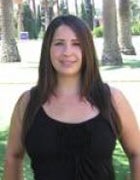 Dr. Monica Gallegos completed her M.A. in Communication and Journalism at the University of New Mexico, and her PhD at the University of Arizona with a focus in Health Communication and a minor in Public Health. Dr. Gallegos studies how interpersonal relationships impact health in underrepresented, underserved, understudied, and at-risk populations, including Latinxs, pregnant women seeking treatment for opioid addiction, as well as incarcerated women, their children, and the guardians of their children. Dr. Gallegos teaches a variety of courses at the undergraduate level, including Interpersonal Communication, Health Communication, Communication Theory, Intercultural Communication, Public Speaking, Advanced Public Speaking, Health Campaigns, and Lifespan Communication. At the graduate level, Dr. Gallegos teaches Health Communication and Interpersonal Communication.
Dr. Monica Gallegos completed her M.A. in Communication and Journalism at the University of New Mexico, and her PhD at the University of Arizona with a focus in Health Communication and a minor in Public Health. Dr. Gallegos studies how interpersonal relationships impact health in underrepresented, underserved, understudied, and at-risk populations, including Latinxs, pregnant women seeking treatment for opioid addiction, as well as incarcerated women, their children, and the guardians of their children. Dr. Gallegos teaches a variety of courses at the undergraduate level, including Interpersonal Communication, Health Communication, Communication Theory, Intercultural Communication, Public Speaking, Advanced Public Speaking, Health Campaigns, and Lifespan Communication. At the graduate level, Dr. Gallegos teaches Health Communication and Interpersonal Communication.
I am excited to be involved with Project Rebound because I believe that mentorship and a college education can give formerly incarcerated students a strong chance to thrive in their/our communities.
Yarma Velázquez Vargas
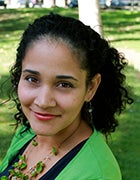 Yarma Velázquez Vargas (Ph.D., Florida State University, 2008) is a Professor of Communication in the Chicanx Studies Department. Yarma’s areas of research interest include Media Studies, Performance Studies, and Cultural Studies. Her work is dedicated to cultivating social justice and diversity through her research, teaching, and service.
Yarma Velázquez Vargas (Ph.D., Florida State University, 2008) is a Professor of Communication in the Chicanx Studies Department. Yarma’s areas of research interest include Media Studies, Performance Studies, and Cultural Studies. Her work is dedicated to cultivating social justice and diversity through her research, teaching, and service.
I am here to learn and if you need help with your school or work presentations, and your nonverbal communication skills my doors are open.
Dr. Melisa Galvan
 Dr. Galván is an associate professor in the Chicana/o Studies department. She holds a Ph.D. in Latin American history from UC Berkeley and writes on the early history of contraband trade in the circum-Caribbean. Her research embraces new interdisciplinary and transnational frameworks and examines the ways in which the region's development had a much wider impact on national Mexican immigration, trade, and diplomatic policies than scholars have previously recognized. She mostly teaches large GE history courses, where she aims to expose students to the importance of approaching “American” history from a multicultural perspective. In her free time, Dr. Galván enjoys spending time with family, being outdoors, and reading.
Dr. Galván is an associate professor in the Chicana/o Studies department. She holds a Ph.D. in Latin American history from UC Berkeley and writes on the early history of contraband trade in the circum-Caribbean. Her research embraces new interdisciplinary and transnational frameworks and examines the ways in which the region's development had a much wider impact on national Mexican immigration, trade, and diplomatic policies than scholars have previously recognized. She mostly teaches large GE history courses, where she aims to expose students to the importance of approaching “American” history from a multicultural perspective. In her free time, Dr. Galván enjoys spending time with family, being outdoors, and reading.
While I don’t discuss it much, I currently have 2 first cousins that are incarcerated in California. I write to them regularly and know firsthand the impact that incarceration can have on families. I look forward to the day that I can spend time with them again, and hope to serve as a resource to you at CSUN. Please do not hesitate to reach out to me!
Nelida Duran
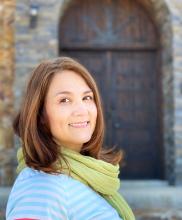 I am a native Angeleno, born and raised in Boyle Heights. I am also homegrown, that is I have earned my degrees in nutritional science and public health at Cal State LA and UCLA, respectively. Food justice informs my course curricula, research, and service to the university and community. My research experience has given me the privilege to work with First Nations, low-income Latino and African American communities, and people living with HIV/AIDS. My research focuses on addressing food and nutrition-related health disparities within the context of behavioral health interventions, global environmental change, and removing systemic barriers to healthy eating.
I am a native Angeleno, born and raised in Boyle Heights. I am also homegrown, that is I have earned my degrees in nutritional science and public health at Cal State LA and UCLA, respectively. Food justice informs my course curricula, research, and service to the university and community. My research experience has given me the privilege to work with First Nations, low-income Latino and African American communities, and people living with HIV/AIDS. My research focuses on addressing food and nutrition-related health disparities within the context of behavioral health interventions, global environmental change, and removing systemic barriers to healthy eating.
Welcome! I support you because I believe in humanity, justice, and equity. More importantly, I believe in you and the power of education in transforming lives and communities.
Kevin Zemlicka
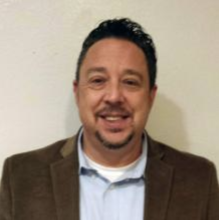
Hi! I’m Kevin Zemlicka. I am an academic advisor at CSUN for the EOP/Student Services Center in the college of social and behavioral sciences. Specifically, I advise for the departments of psychology and anthropology. I’m also a part-time lecturer for the department of anthropology. I’ve been working at CSUN for 8 years, and I can honestly say that I have found my passion in academic advising. Helping students identify and prepare for academic and/or professional goals only becomes more fulfilling each year. As an applied anthropologist and founding member of the ARCS Research Center for STEAHM, I also hire students to work with me in paid fellowships to conduct research for NASA. At age 53 I maintain a strong commitment to fighting for social justice, and to continually developing the listening skills required to become a strong ally to marginalized and oppressed groups. In that spirit, I look forward to assisting with Project Rebound and the community of resilient scholars that it serves.
Wishing each of you safe passage through these uncertain times, and also a joyous and peaceful holiday season
Dr. Jackyln Stallcup
 I am currently the interim Dean of the College of Humanities. My home department is English, where I teach courses in children’s literature, literature for adolescents, and nineteenth-century novels. Like many of our CSUN students, I attended a local community college (Cerritos). I then graduated from Cal Poly Pomona and earned my Ph.D. in English from UC Riverside. My work in children’s literature focuses on the issue of power and representation, including an essay on satire, the academic community, and Captain Underpants, and another on the political implications of “taming” Swift’s satire when creating children’s versions of Gulliver’s Travels.
I am currently the interim Dean of the College of Humanities. My home department is English, where I teach courses in children’s literature, literature for adolescents, and nineteenth-century novels. Like many of our CSUN students, I attended a local community college (Cerritos). I then graduated from Cal Poly Pomona and earned my Ph.D. in English from UC Riverside. My work in children’s literature focuses on the issue of power and representation, including an essay on satire, the academic community, and Captain Underpants, and another on the political implications of “taming” Swift’s satire when creating children’s versions of Gulliver’s Travels.
I am so glad that you have joined us here at CSUN! Please reach out to me with any questions or concerns—I love meeting with students and am excited to be able to help you in your educational journey.
Kate Stevenson
I 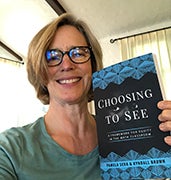 am the daughter of a university math professor and a social worker, which makes social justice issues related to math education irresistible to me. Moreover, it makes CSUN, my academic home for 20 years, my dream job. At CSUN, I have had the privilege of learning from students whose lived experiences have been very different from my own. These lessons have made me a much more effective teacher and a better person. One story that stands out was my experience working remotely with an incarcerated student. He took one of my very advanced math courses from prison, and his work was some of the most brilliant I have ever seen from any student at any institution. By the time he left prison, after serving a 10 year sentence, he had completed his BS in math and was well situated for his new life. I believe strongly that the mission of CSUN is to treat each person with dignity, respect, and optimism. For that reason, I would be delighted to support Project Rebound students, particularly as they navigate the math world.
am the daughter of a university math professor and a social worker, which makes social justice issues related to math education irresistible to me. Moreover, it makes CSUN, my academic home for 20 years, my dream job. At CSUN, I have had the privilege of learning from students whose lived experiences have been very different from my own. These lessons have made me a much more effective teacher and a better person. One story that stands out was my experience working remotely with an incarcerated student. He took one of my very advanced math courses from prison, and his work was some of the most brilliant I have ever seen from any student at any institution. By the time he left prison, after serving a 10 year sentence, he had completed his BS in math and was well situated for his new life. I believe strongly that the mission of CSUN is to treat each person with dignity, respect, and optimism. For that reason, I would be delighted to support Project Rebound students, particularly as they navigate the math world.

